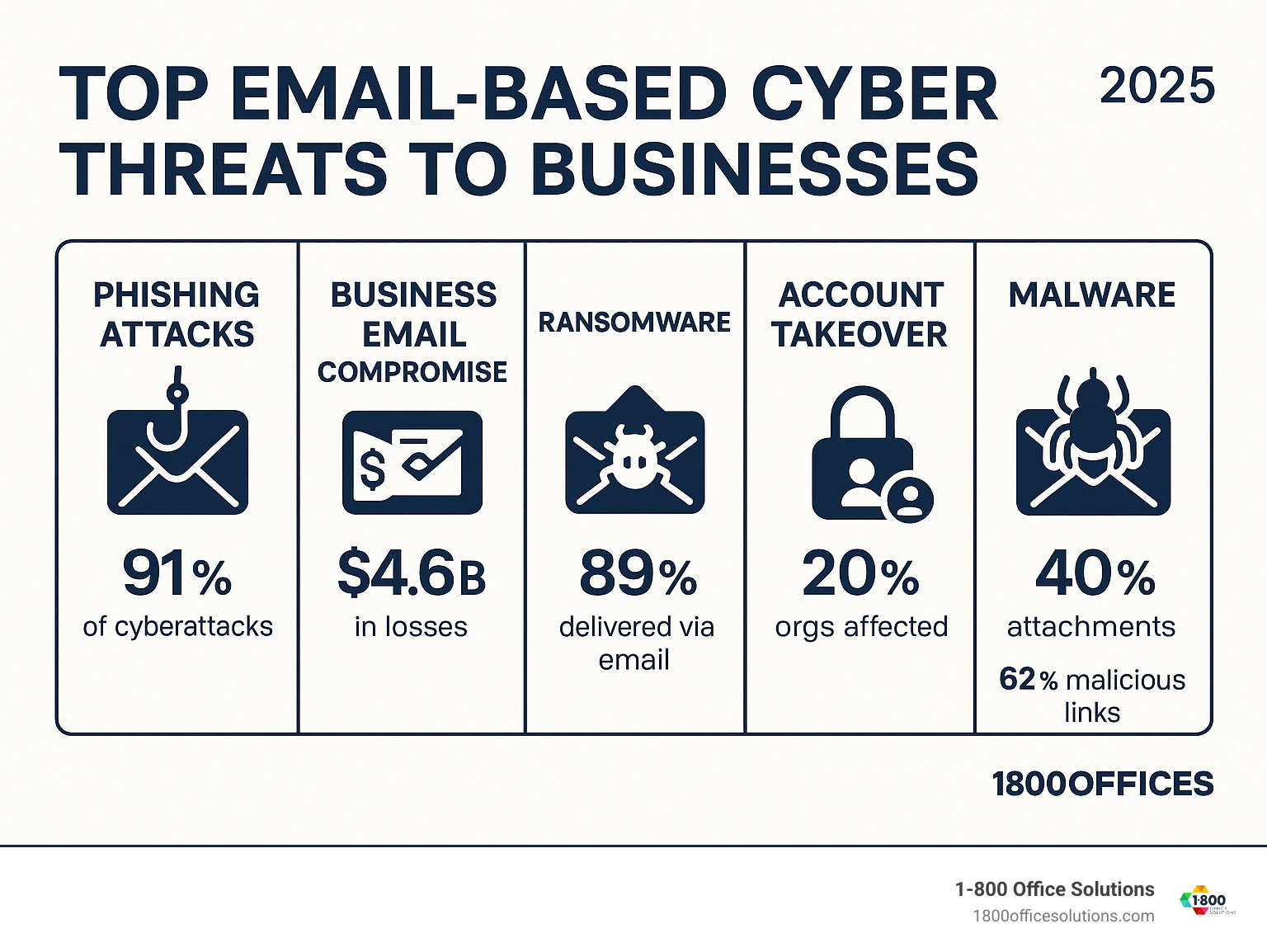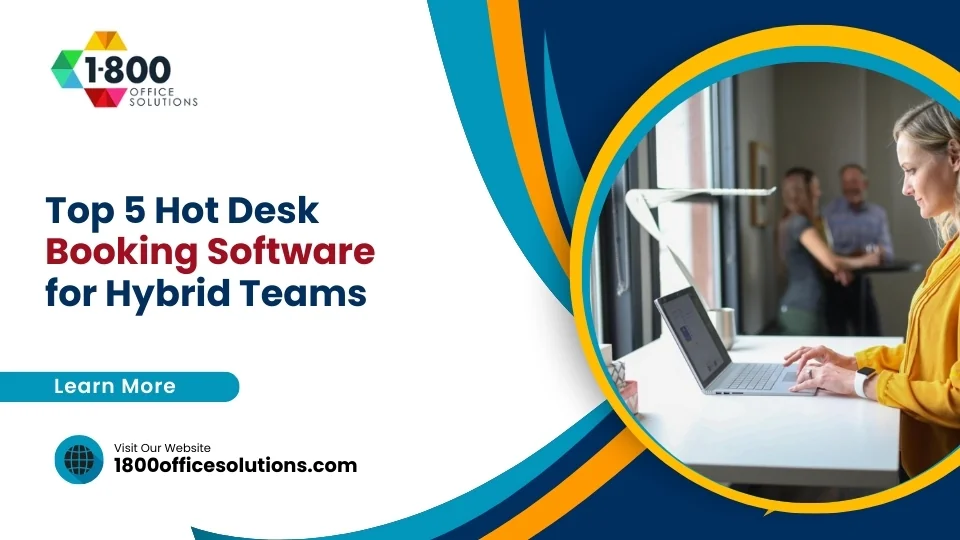Cloud-based Email Security: A Comprehensive Guide to Protecting Your Communications
is a modern approach to protecting business communications, using internet-based services to defend against threats like phishing, malware, and business email compromise.
Key Components of Cloud Email Security:
- AI-Powered Threat Detection: Identifies new and evolving attacks using machine learning.
- Real-Time Scanning: Analyzes emails, links, and attachments before they reach users.
- API Integration: Connects directly to email platforms like Microsoft 365 and Google Workspace.
- Automated Remediation: Automatically removes threats from inboxes, even after delivery.
- Data Loss Prevention: Prevents sensitive information from leaving your organization.
The move to cloud-based email protection is a matter of survival. With 91% of cyberattacks starting with email and threats like spear phishing causing over $4.6 billion in losses in 2023 alone, traditional email defenses are obsolete.
On-premise security gateways miss modern threats like sophisticated social engineering, AI-generated content, and zero-day exploits. Attackers now craft personalized attacks that bypass old filters by targeting the human element.
Cloud solutions counter this with vast threat intelligence networks, advanced AI analysis, and real-time updates. Unlike gateways, they also protect internal email traffic—a critical blind spot for older systems.
For businesses with remote teams and BYOD policies, cloud email security offers robust protection without the complexity of managing hardware or the risk of outdated defenses.

The Modern Threat Landscape: Why Email is the #1 Attack Vector
Email is the digital backbone of modern business, which also makes it the top target for cybercriminals. The statistics are stark: 91% of all hacking attacks start with an email, and email is linked to 96% of cybersecurity breaches. Nearly every cyber attack your business faces will likely begin in an inbox.
These aren’t minor issues. The FBI reports that attacks like phishing, spear-phishing, and Business Email Compromise (BEC) resulted in nearly 320,000 complaints and $4.6 billion in losses in 2023. Today’s cybercriminals use highly targeted, legitimate-looking messages, studying your business to craft convincing attacks.
Common email-based attacks include Ransomware delivered via attachments, Malware that silently steals data, and Account Takeover (ATO), where criminals use legitimate employee accounts to defraud customers and staff. The devastating financial impact of BEC attacks highlights the severity of this threat.
Understanding Advanced Email Threats
Cybercriminals exploit human psychology to manipulate people into clicking, downloading, or sharing sensitive information.
Social engineering attacks prey on instincts like trust and helpfulness. An attacker might pose as IT requesting a password or a CEO demanding an urgent wire transfer.
Impersonation attacks include CEO fraud or “whaling,” where criminals impersonate executives to authorize fake payments, often studying company communication styles to appear authentic.
Zero-day exploits use unknown software vulnerabilities. Since no patch exists, traditional signature-based security solutions are ineffective against them.
Invoice fraud is a common BEC tactic where attackers send fake invoices or alter real ones to redirect payments to their own accounts.
Supply chain compromise occurs when attackers hack a trusted vendor’s email and use that account to send malicious emails to you, bypassing security filters and employee suspicion.
Credential harvesting uses fake login pages that mimic real systems to trick employees into revealing their usernames and passwords, giving attackers internal access.
Why Your Business Needs Cloud-based Email Security
With threats evolving daily, relying on “good enough” security is a major risk. Cloud-based email security is essential for business survival.
Data breach prevention is a top priority. A single email attack can expose customer data and trade secrets. Cloud security provides multi-layered defense to protect this sensitive information.
Financial loss mitigation directly saves money by preventing BEC attacks or ransomware, protecting your business from immediate costs, lost productivity, and regulatory fines.
Business continuity is maintained as cloud solutions ensure your communication systems remain online, even during an attack.
Reputation management is protected by preventing data breaches that can destroy customer trust.
Remote workforce protection is critical. Cloud-based email security provides consistent protection for your team, regardless of their location or device.
The Core Components of Effective Cloud-based Email Security
Effective cloud-based email security acts as a sophisticated, intelligent shield for your entire email environment. Unlike older methods that just block spam, modern solutions offer a multi-layered defense.

The best solutions offer proactive defense, constantly learning from global email traffic to anticipate threats. When a new threat appears, automated remediation actively removes it from inboxes, even after delivery. Key benefits also include scalability, allowing security to grow with your business without new hardware, and centralized management, which provides a single dashboard for monitoring threats and managing policies across the organization.
Key Technologies That Power Modern Protection
Modern protection is powered by impressive technology that provides confidence in your security investment.
Artificial Intelligence and Machine Learning analyze billions of emails to spot patterns and identify brand-new threats that traditional, signature-based security would miss.
Sandboxing opens suspicious attachments and links in a secure, isolated virtual environment to observe their behavior. If malicious, they are blocked before reaching the user.
URL rewriting adds click-time protection by routing users through a security checkpoint that verifies a link’s safety at the moment of the click.
Content Disarm and Reconstruction (CDR) deconstructs files, removes potentially dangerous elements like hidden scripts, and rebuilds a clean, safe version of the document.
Natural Language Understanding (NLU) analyzes email content for context, tone, and intent to detect subtle signs of social engineering and impersonation attacks.
The Critical Role of Threat Intelligence and DLP
Two final components are critical: threat intelligence and data loss prevention (DLP).
Global threat feeds create a worldwide early warning system. Information about new threats is shared instantly across provider networks, updating your defenses in minutes, not days.
Data Loss Prevention (DLP) protects sensitive information from leaving your organization. It scans outbound emails for data like credit card numbers or confidential records and can automatically block, quarantine, or encrypt them to prevent leaks and ensure compliance with regulations like HIPAA, GDPR, and PCI-DSS.
For businesses looking for comprehensive protection that goes beyond just email security, our team at 1-800 Office Solutions offers a full range of IT services designed to keep your entire technology infrastructure secure and running smoothly.
The Evolution of Email Protection: From Gateways to Integrated Cloud Security
Email security has evolved dramatically from traditional Secure Email Gateways (SEGs). For years, these on-premise appliances acted as perimeter guards, catching basic spam and known viruses. However, as businesses adopted cloud email like Microsoft 365 and Google Workspace, the limitations of SEGs became clear.
SEGs have critical flaws for modern businesses. They only scan external email, leaving a massive blind spot for internal threats like account takeover attacks. They also require significant administrative overhead for hardware management and updates, offer limited visibility into the threat landscape, and use a reactive approach that can’t keep up with the rapid evolution of modern threats. This led to the rise of Integrated Cloud Email Security (ICES), a superior approach.
Traditional Secure Email Gateways (SEGs) vs. Integrated Cloud Email Security (ICES)
The difference between SEGs and ICES is stark.
Traditional SEGs are perimeter-based, relying on signature-based detection for known threats. Deployment requires hardware and complex network changes. Their primary limitation is a complete lack of visibility into internal email traffic, a major vulnerability in cloud environments.
Integrated Cloud Email Security (ICES) integrates directly with your email platform via APIs, providing comprehensive protection that covers both external and internal email traffic. ICES uses artificial intelligence and machine learning for behavioral analysis, catching zero-day attacks and sophisticated social engineering attempts that SEGs miss. Deployment is seamless, often with no mail routing changes, and it provides real-time threat response.
The Benefits of an Integrated (ICES) Approach
The ICES approach offers significant advantages:
- Adaptive Security: The system learns your organization’s communication patterns to better distinguish legitimate emails from threats.
- User Education: Instead of just blocking emails, ICES can provide contextual warnings to help train employees to spot danger.
- Seamless Integration: Designed for Microsoft 365 and Google Workspace, ICES works with your cloud infrastructure, not against it.
- Improved Detection Accuracy: By analyzing multiple data points (sender, content, links, behavior), ICES makes more informed decisions, reducing both false positives and dangerous false negatives.
This evolution means email security is no longer a constant headache but a reliable, automated protection system that works behind the scenes.
Choosing and Implementing the Right Email Security Strategy

Selecting the right cloud-based email security solution is a strategic decision. It requires a thorough needs assessment, vendor evaluation, policy configuration, and user training to create a protective ecosystem for your communications.
How to Select the Right Solution for Your Business
When guiding clients, we focus on these key criteria:
- Detection Efficacy: Look for high accuracy in catching advanced threats like phishing and BEC, with near-zero false positives. AI and machine learning are crucial for adapting to new tactics.
- Integration Capabilities: The solution must integrate seamlessly with Microsoft 365 or Google Workspace via API for deep inspection and fast remediation without disrupting mail flow.
- Management Simplicity: An intuitive, centralized interface is essential for simplifying policy management and incident response, reducing administrative overhead.
- Scalability: The platform must scale effortlessly with your business growth without requiring complex reconfigurations.
- Support: Choose a vendor with responsive technical support and comprehensive documentation to help you optimize your security.
Implementing Your Cloud-based Email Security Solution
Our team at 1-800 Office Solutions ensures a smooth implementation process:
- Seamless Deployment: Modern ICES platforms integrate via API, often requiring no disruptive MX record changes and causing zero downtime.
- Configuration and Tuning: We handle any necessary MX record changes or API configurations and fine-tune security policies to match your specific risk profile and business needs.
- User Training: Technology is only one part. We stress training employees to recognize and report threats, a critical practice highlighted by Cybersecurity best practices from CISA.
Ensuring Compliance and Preventing Data Loss
Cloud-based email security
is pivotal for meeting regulatory requirements and preventing data loss.
- Regulatory Compliance: Our solutions help you align with standards like HIPAA, GDPR, and PCI-DSS, avoiding severe penalties from non-compliance.
- Automated DLP Policies: We configure policies to automatically scan outbound emails for sensitive data. Detected information can be blocked, quarantined, or encrypted to prevent leaks.
- Email Encryption and Archiving: Encryption protects sensitive data in transit. Integrated archiving securely stores all communications for legal and audit purposes (eFindy), simplifying compliance. For comprehensive data security, consider how you manage all office workflows, including secure printing. More info about managed print services.
Secure Your Communications and Future-Proof Your Business
Your business communications are under constant attack from sophisticated email threats. The question is not if you’ll be targeted, but if you’ll be ready. Cloud-based email security is a fundamental shift in defense, offering AI-powered detection and real-time remediation that traditional security cannot match.
The financial stakes are enormous, with BEC attacks causing over $4.6 billion in losses annually. Proper security is an investment that protects your business continuity, reputation, and remote workforce. It allows you to operate with confidence, knowing your communications and data are safe.
However, technology is only part of the solution. A successful strategy requires a people-centric approach, training employees to be your first line of defense. At 1-800 Office Solutions, we combine advanced technology with expert guidance, helping businesses nationwide—from Miami to Detroit and Manhattan to Charlotte—implement effective security.
We begin with a comprehensive security assessment custom to your unique needs. A proactive security posture is no longer optional; it’s essential for survival. Don’t wait for a breach to understand the risk.
Take the first step toward truly secure communications today. Protect your business with advanced email security solutions and give your business the protection it deserves. Your future success depends on the security decisions you make right now.
How does cloud email security protect against brand new, "zero-day" threats?
Unlike traditional security that relies on lists of known threats, modern cloud-based email security uses proactive methods. It employs AI-powered behavioral analysis and sandboxing to identify new threats. When an unknown attachment arrives, it's opened in a safe, isolated virtual environment. If the file exhibits malicious behavior (like trying to encrypt data), the system blocks it before it reaches an inbox. This approach stops brand-new attacks that have never been seen before.
Can a cloud solution protect internal email traffic between employees?
Yes. This is a key advantage over traditional gateways, which only monitor external email. Modern Integrated Cloud Email Security (ICES) solutions connect directly to your email platform (like Microsoft 365 or Google Workspace) via APIs. This gives them visibility into all email traffic, including messages sent between employees. This is crucial for stopping internal threats like account takeover attacks, where a compromised account is used to phish other team members.
Will implementing a new email security solution cause downtime for my business?
No. Modern cloud-based email security solutions are designed for zero-downtime implementation. Most use API-first integration, connecting directly to your email platform without disrupting mail flow. This means there is no need to change your MX records, and your email continues to operate normally during setup. At 1-800 Office Solutions, we specialize in seamless, zero-downtime implementations, handling all technical details so you can continue running your business without interruption.











